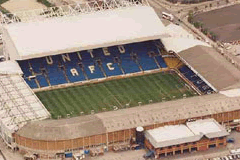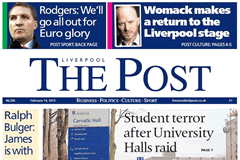Another report, another confirmation of the economic chasm that exists between London and the rest of the country.
The Centre for Cities report ‘Cities Outlook 2014’ highlighted the growing gap between North and South, in particular planet London and the rest of us.
London accounted for a huge 80% of private sector jobs created between 2010-2012, while Britain’s nine next largest cities combined created only 10% of private sector work.
In actual terms 216,700 jobs were created in London in the two year period, compared to the next best figure which is Manchester’s 13,200.
Cities like Liverpool can partially celebrate the news that more private sector jobs have been created than in previous years, but then we have to accept the low base from which the city was starting from; and the yet to be fully felt impact of massive public sector cuts across Merseyside, and indeed the North of England generally.
Successive governments have tried, and quite clearly failed, to address what has been an unhealthy imbalance in the UK economy for far too many years, and it is now surely time for our politicians to accept that only radical, structural reform that allows genuine decentralisation of power to our great city regions and counties is not just desirable, but absolutely essential.
Poorly funded Local Enterprise Partnership’s, a scattering of city mayors and combined authorities are the existing vehicles that are in place to give the regions a better chance of competing with the London beast. As the figures show, they simply aren’t working.
The problem is that whichever colour the government, Westminster finds it incredibly difficult to give up the patronage it has held over the rest of the country for centuries.
‘How can we trust those Northerners to elect politicians who will do the right thing’; or ‘We know best’ is the long held view in the corridors of Westminster power. Crumbs off the table for the odd city deal here; the much trumpeted but ineffective Regional Growth Fund; and other poorly funded one-off initiatives are apparently all we deserve.
It is time we in the north started to demand more. Private/ public sector partnerships have thrived in Manchester, Liverpool, Leeds and Lancashire for many years now, but to maximise the potential of this collaboration we need a genuine transfer of powers AND resource.
The models of governance can be debated and discussed within the regions, and one size may not fit all, but we can’t go on like this.
For me the starting point is adopting an economic strategy that recognises the dangers and absurdity of more than 80% of the nation’s wealth being created in one city; a meaningful redistribution and decentralisation of funding for major city regions and counties, including an increase in borrowing limits and control over council tax and business rates; plus the establishment of regional investment banks.







